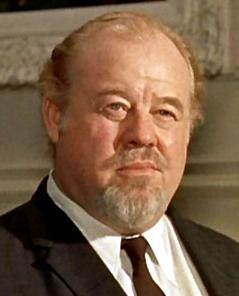Related Research Articles

Burl Icle Ivanhoe Ives was an American singer, musician, actor, and author.

Hardinge Stanley Giffard, 1st Earl of Halsbury, PC QC later KC was a British lawyer and Conservative politician. He served three times as Lord High Chancellor of Great Britain, for a total of seventeen years.

William Giffard, was the Lord Chancellor of England of William II and Henry I, from 1093 to 1101, and Bishop of Winchester (1100–1129).

Godfrey Giffard was Chancellor of the Exchequer of England, Lord Chancellor of England and Bishop of Worcester.
Walter Giffard was Lord Chancellor of England and Archbishop of York.
George Childs Burling was a United States Union Army officer during the American Civil War, serving mostly as colonel and commander of the 6th New Jersey Volunteer Infantry. Burling was born in Burlington County, New Jersey, raised on his father's farm and educated at a private school in Norristown, Pennsylvania. He was a coal merchant and a militia officer before the war. Burling's militia company was mustered into the volunteer service for a three-month term in July 1861, but it became company F of the 6th New Jersey with a three-year enlistment on September 9, 1861. Burling became the regiment's major on March 19, 1862 and lieutenant colonel on May 7 of that year. Burling was wounded at the Second Battle of Bull Run in August 1862.
Walter Giffard, Lord of Longueville in Normandy, 1st Earl of Buckingham was an Anglo-Norman magnate.

The Stripple stones is a henge and stone circle located on the south slope of Hawk's Tor, Blisland, 10 kilometres (6.2 mi) north northeast of Bodmin on Bodmin Moor in Cornwall, England, UK.
Walter Giffard, Lord of Longueville, Normandy, was a Norman baron, a Tenant-in-chief in England, a Christian knight who fought against the Saracens in Spain during the Reconquista and was one of the 15 or so known companions of William the Conqueror at the Battle of Hastings in 1066.
Squire Trelooby is a 1704 farce by the writers William Congreve, John Vanbrugh and William Walsh. All were members of the Kit-Cat Club and another member Samuel Garth wrote a prologue. It was inspired by the French play Monsieur de Pourceaugnac by Molière.
Henry Giffard (1694–1772) was a British stage actor and theatre manager.
The Independent Patriot is a 1737 comedy play by Francis Lynch.
King Charles I is a 1737 tragedy by the British writer William Havard. Written as an imitation of the style of Shakespeare's history plays, it focuses on the imprisonment of Charles I following his defeat in the Civil War and execution by the English Republic. It was a major success and anticipated later works by portraying Charles as a devoted family man who is undone by the scheming of Oliver Cromwell and his allies.
Scanderbeg, A Tragedy is a 1733 tragedy by the British writer William Havard. It is based on the life of Skanderbeg who led a rebellion against the Ottoman Empire in the fifteenth century. Another play about him George Lillo's The Christian Hero was produced two years later.
All Alive and Merry is a 1737 comedy play by the British writer Samuel Johnson. The original Lincoln's Inn Fields cast included William Giffard, Charlotte Charke and Anna Marcella Giffard. It was staged by Henry Giffard's company which had recently moved from the Goodman's Fields Theatre in Whitechapel.
The Parricide is a 1736 tragedy by the Irish writer James Sterling.
The Fashionable Lady is a 1730 comedy play by James Ralph.
The Fall of the Earl of Essex is a 1731 tragedy by the writer James Ralph. It was inspired by Restoration-era drama The Unhappy Favourite by John Banks about the downfall of the Earl of Essex, a military commander and former favourite of Elizabeth I.
A Tutor for the Beaus: Or Love in a Labyrinth is a 1737 comedy play by the British writer John Hewitt. It drew inspiration from an earlier one-act play Le Français à Londres by the French writer Louis de Boissy.

She Would and She Would Not is a 1702 comedy play by the English actor-writer Colley Cibber.
References
- ↑ Burling p.66